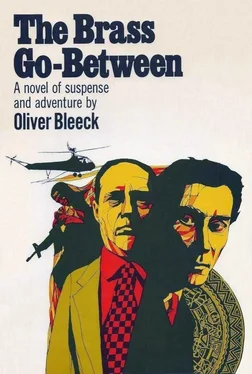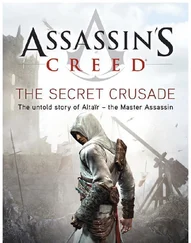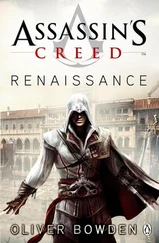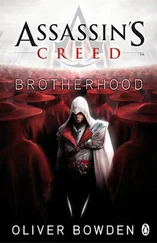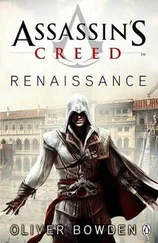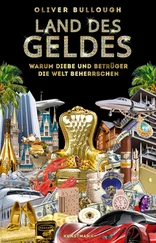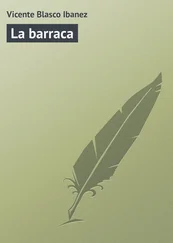Oliver Bleeck - Brass Go-Between
Здесь есть возможность читать онлайн «Oliver Bleeck - Brass Go-Between» весь текст электронной книги совершенно бесплатно (целиком полную версию без сокращений). В некоторых случаях можно слушать аудио, скачать через торрент в формате fb2 и присутствует краткое содержание. Город: New York, Год выпуска: 1969, Издательство: William Morrow, Жанр: Детектив, на английском языке. Описание произведения, (предисловие) а так же отзывы посетителей доступны на портале библиотеки ЛибКат.
- Название:Brass Go-Between
- Автор:
- Издательство:William Morrow
- Жанр:
- Год:1969
- Город:New York
- ISBN:нет данных
- Рейтинг книги:3 / 5. Голосов: 1
-
Избранное:Добавить в избранное
- Отзывы:
-
Ваша оценка:
- 60
- 1
- 2
- 3
- 4
- 5
Brass Go-Between: краткое содержание, описание и аннотация
Предлагаем к чтению аннотацию, описание, краткое содержание или предисловие (зависит от того, что написал сам автор книги «Brass Go-Between»). Если вы не нашли необходимую информацию о книге — напишите в комментариях, мы постараемся отыскать её.
Brass Go-Between — читать онлайн бесплатно полную книгу (весь текст) целиком
Ниже представлен текст книги, разбитый по страницам. Система сохранения места последней прочитанной страницы, позволяет с удобством читать онлайн бесплатно книгу «Brass Go-Between», без необходимости каждый раз заново искать на чём Вы остановились. Поставьте закладку, и сможете в любой момент перейти на страницу, на которой закончили чтение.
Интервал:
Закладка:
“That’s probably a damned good idea,” Demeter said. “I’d be all for it if the other side would, although I hear that they won’t so it looks like we’re stuck with you.”
“Get unstuck,” I said.
“What’d you say?”
“I said make up your mind.”
He was silent for a moment. “All right, St. Ives, we’ll go along. But if you’re interested in what I think, which you’re probably not, I think you’re making a mistake. The reason I think you’re making a mistake is because whoever you’re dealing with have already killed one guy. They could round it out to a couple and they’d still be way ahead after they got the money.”
“But not until after they got it,” I said.
“I hope you’re as bright as you think you are. I hope you’re even half as bright.”
“Not bright, careful.”
“Careful,” he said. “I almost forgot about that.”
“Anything else?”
“Just one item.”
“What?”
“The spade’s wife.”
“What about her?”
“She won’t be giving us any more information about Sackett.”
“Why?”
“She hung herself about an hour ago,” Demeter said, and banged his phone down in my ear.
I had just finished a steak that wasn’t quite as good as the menu had promised it would be and was waiting for the elevator when he appeared at my elbow wearing a mauve coat of Edwardian cut with eight brass buttons down its front, a cream-colored shirt whose six-inch-long points were filled by a scarlet neckpiece with a knot the size of a small piece of pie, and a smile so dazzling that it could have lighted up a fairly dim room.
“Mr. St. Ives, I believe,” he said, bowing formally from the waist. There was a lot to bow: he was about two inches shorter than the elevator doors and not quite as wide. As he bowed I had the chance to admire his fawn trousers with their burnt orange windowpanes and the brushed green suede shoes that were topped by a pair of large silver buckles.
“I’m St. Ives,” I said.
“Permit me,” he said, and whisked out a small leather case from which he extracted an ivory card and handed it to me. It was engraved in a swirly italics script which read: Conception Mbwato.
Not only was Mr. Mbwato a very big man, he was also a very black man with skin the color and sheen of ripe eggplant. His accent was good BBC British and he didn’t offer to shake hands.
“How can I help you, Mr. Mbwato?” I said, looking up into his unlined face with its broad flat nose, wide, thick mouth, and curiously gentle eyes. Or perhaps they were just sad.
“I thought we might have a little chat,” he said.
“About what?”
“The shield of Komporeen.”
I nodded. “All right. Where would you like to talk? Here, my room, or in the bar?”
“I think your room would be by far the more preferable.”
“All right,” I said, “my room.”
When we got there, I made a motion toward the largest chair, which Mbwato lowered himself into with a sigh. “It was frightfully hot today,” he said. “Even for me.”
“You’re used to it?” I said.
Mbwato lit up the room again with his smile. “Indeed, Mr. St. Ives, I am used to it.”
I was sitting on the chair which went with the writing desk that held the phone. Mbwato crossed his legs and looked around the room as if he thought he might buy it. I lit a cigarette and watched him look. The silence was complete, almost final, as if neither of us would ever speak again, but somehow it was not uncomfortable.
“I am from Brefu,” Mbwato said as if that cleared up everything.
“In Jandola,” I said.
Mbwato shook his head. “Not in Jandola, Mr. St. Ives,” he said gently. “In Komporeen.”
“You’ve been having some trouble there.”
“A great deal of trouble, and I am afraid that it will grow much worse before it grows better.”
“I’m sorry to hear that,” I said.
“Are you really? Why?”
“There’s nothing to be said in defense of human suffering,” I said. “From what I’ve read, there’s a great deal of it going on in your country.”
“More than most persons realize, far more. But I’m not here to talk about my country except in a rather tangential manner. I’m here to talk about the shield of Komporeen which you have been engaged to buy back from the thieves who stole it from the Coulter Museum.”
“You seem sure about that.”
“Quite. And you can rest assured, Mr. St. Ives, that none of the persons with whom you have been dealing has betrayed the confidential nature of either your proposed negotiations or the theft itself. It is simply that we have our source within the Jandolaean Embassy which, of course, has been kept apprised of the entire affair.”
“I see.”
Mbwato leaned forward in his chair and rested his elbows on his knees. Even seated he seemed to loom over me. “Do you know much about the shield of Komporeen, Mr. St. Ives, other than that you have been authorized to offer $250,000 for its return?”
“Not really,” I said. “I know it’s about a yard in diameter, that it weighs sixty-eight pounds, that it is regarded as something of a symbol, a vital one, I suppose, by both your people and those whom you’re fighting, and that one man has been killed because of it.”
“One man in the United States,” Mbwato said, “and more than a million in my country. I’m afraid that it has a most bloody history. If we were able to trace that history back for centuries to its origin, the death toll might even reach high into the millions. You seem to understand that the shield of Komporeen is the symbol of authority in my country. It can be compared, but not very closely, with the Crown of England. Or nearer to home and perhaps from a more sentimental viewpoint, at least, it occupies much the same place in the hearts of my countrymen as your original Declaration of Independence does in yours. But even that is not a proper comparison because the shield is more than an historical document. It is the physical embodiment of a legend that exists amongst a people who give very high credence to their legends. But not only do the Komporeeneans value it, so also do the Jandolaeans, and many, many terrible wars have been fought for its possession. In sum, if one were to combine the sentimental, symbolic, and emotional values of the Crown of England, the Cross of Christianity, and your own Declaration of Independence, then one would have some inkling of how the shield is regarded by my people. And, I suppose,” he added thoughtfully, “by the Jandolaeans.”
Mbwato stopped talking and the silence crept back into the room. He sat there, dwarfing his chair, staring at the carpet. Then he began to talk or rumble again. His voice went with his size, a deep bass that seemed to escape from far down in his chest.
“The war for us has been going badly,” he said, still gazing at the carpet. “We are short of everything, of ammunition, of weapons, of petrol, and of food. Especially food. The government of Komporeen (and I assure you, Mr. St. Ives, we do have a government) has been recognized by only a handful of countries, mostly African, and almost as poor as we. But there is a good chance, an excellent chance, I should say, that two major European powers will soon grant us recognition and along with it, much-needed aid in the form of food and weaponry.”
“What countries?” I said.
“Strangely enough, France and Germany.”
“That is strange.”
“Yes, I agree. Britain, of course, is siding with Jandola and your own country has adopted what some have referred to as a ‘hands-off’ policy. In effect, this means that they’re following Britain’s lead. As for Russia — well, Russia is supplying both sides, clandestinely to us, openly to Jandola.”
Читать дальшеИнтервал:
Закладка:
Похожие книги на «Brass Go-Between»
Представляем Вашему вниманию похожие книги на «Brass Go-Between» списком для выбора. Мы отобрали схожую по названию и смыслу литературу в надежде предоставить читателям больше вариантов отыскать новые, интересные, ещё непрочитанные произведения.
Обсуждение, отзывы о книге «Brass Go-Between» и просто собственные мнения читателей. Оставьте ваши комментарии, напишите, что Вы думаете о произведении, его смысле или главных героях. Укажите что конкретно понравилось, а что нет, и почему Вы так считаете.
